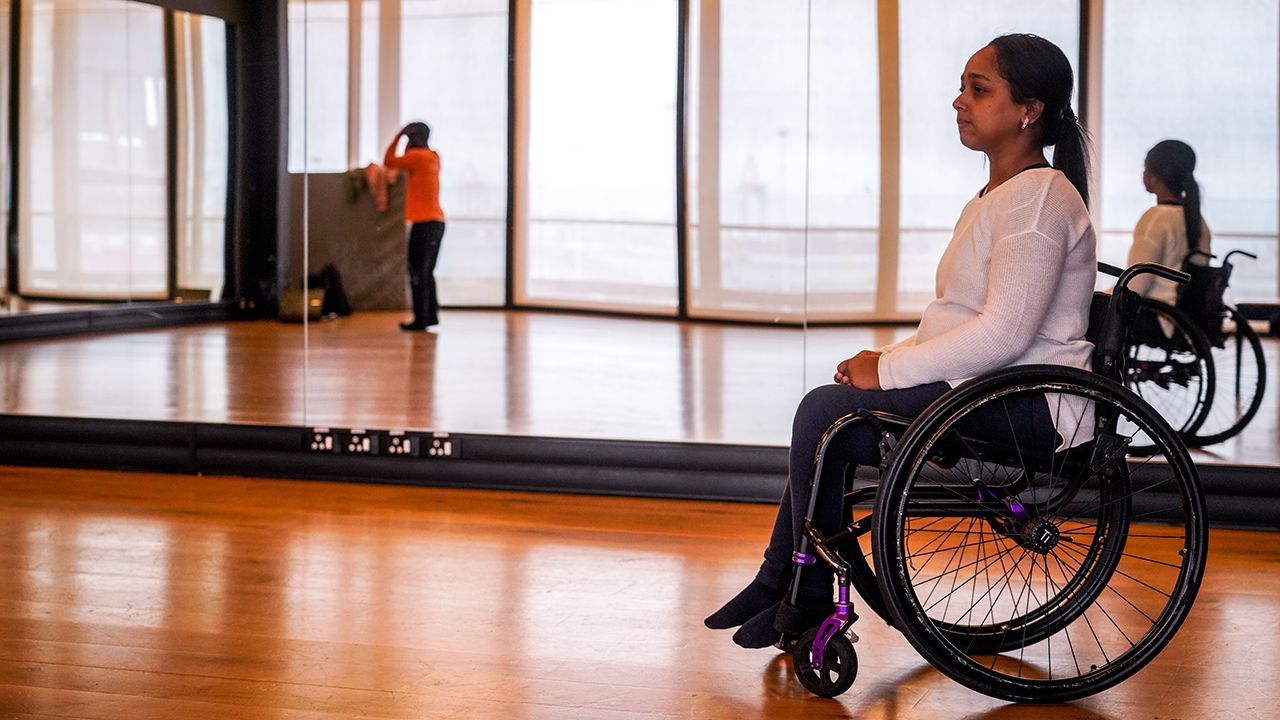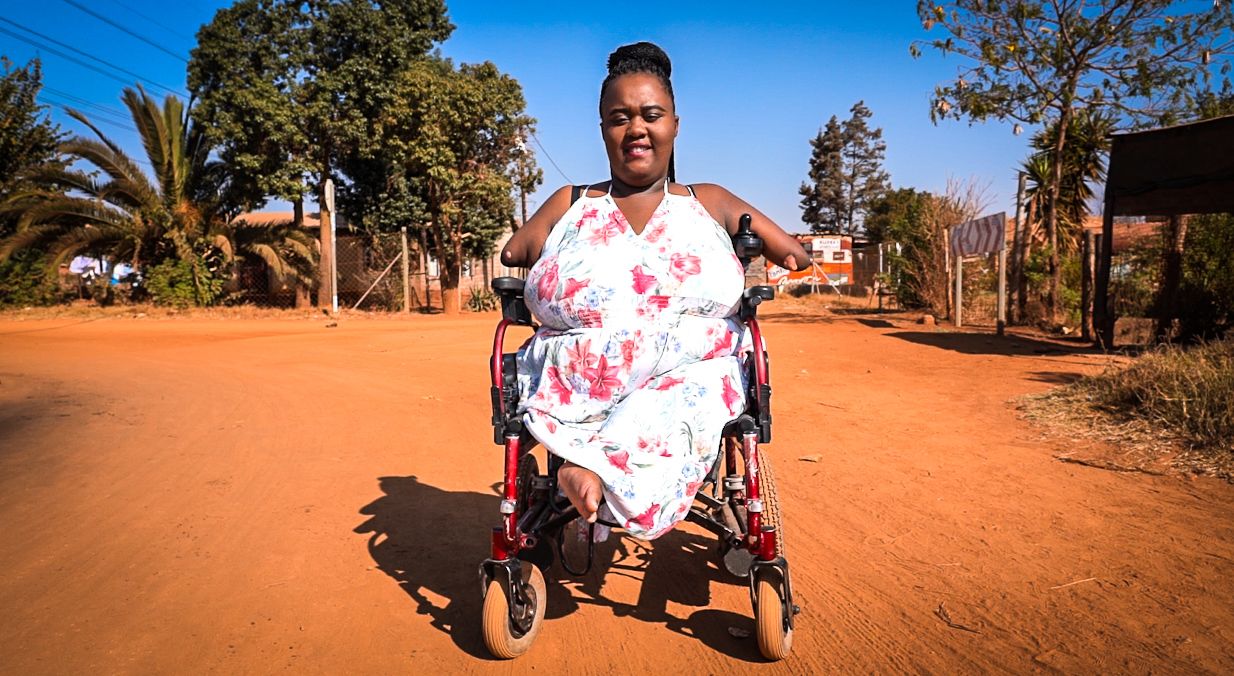
Fierce, fearless and fighting the stigma - these five women are challenging stereotypes and carving a niche for themselves in a world that isn't always kind to people with disabilities.
By Chanté Schatz
Sumarie Jordaan
“I want people to realise that it's OK. You can come ask questions, we are not a different species, we are part of society.”
Singing was not on the agenda for 20-year-old Sumarie Jordaan, but her disability became her motivation to find her angelic voice.
Sumarie and her twin sister Elanza were born with Twin-to-Twin Transfusion Syndrome, a disease that affects the placenta during identical twin pregnancies.
As a result, Elanza was diagnosed with cerebral palsy, while Sumarie became hemiplegic on her left side and hearing impaired since the age of three.
Growing up in the university town of Stellenbosch, Sumarie enjoyed a farm-like lifestyle with her family.
“I remember how, when I was small, me and my sister played. I would hold onto her electric wheelchair, while I was in a normal wheelchair, and we liked to play drive drive.”
Sumarie enjoyed a variety of sports in school, from wheelchair basketball, to athletics events like javelin throw and shot put.
Her biggest passion, however, has always been singing and songwriting.
In 2018, she began singing lessons. A year later, she released her first Afrikaans single Verander Jou Siening (Change Your Point Of View).
Sumarie said the song was motivated by the fact that people were afraid to ask questions about disabilities.
“I want people to realise that it's OK. You can come ask questions, we are not a different species, we are part of society.”
She now spends some time in studio, recording new songs for her first album.
The artist said that she preferred the term differently abled, rather than disabled.
“I believe everybody has a different ability and a different challenge; nobody is perfect.”
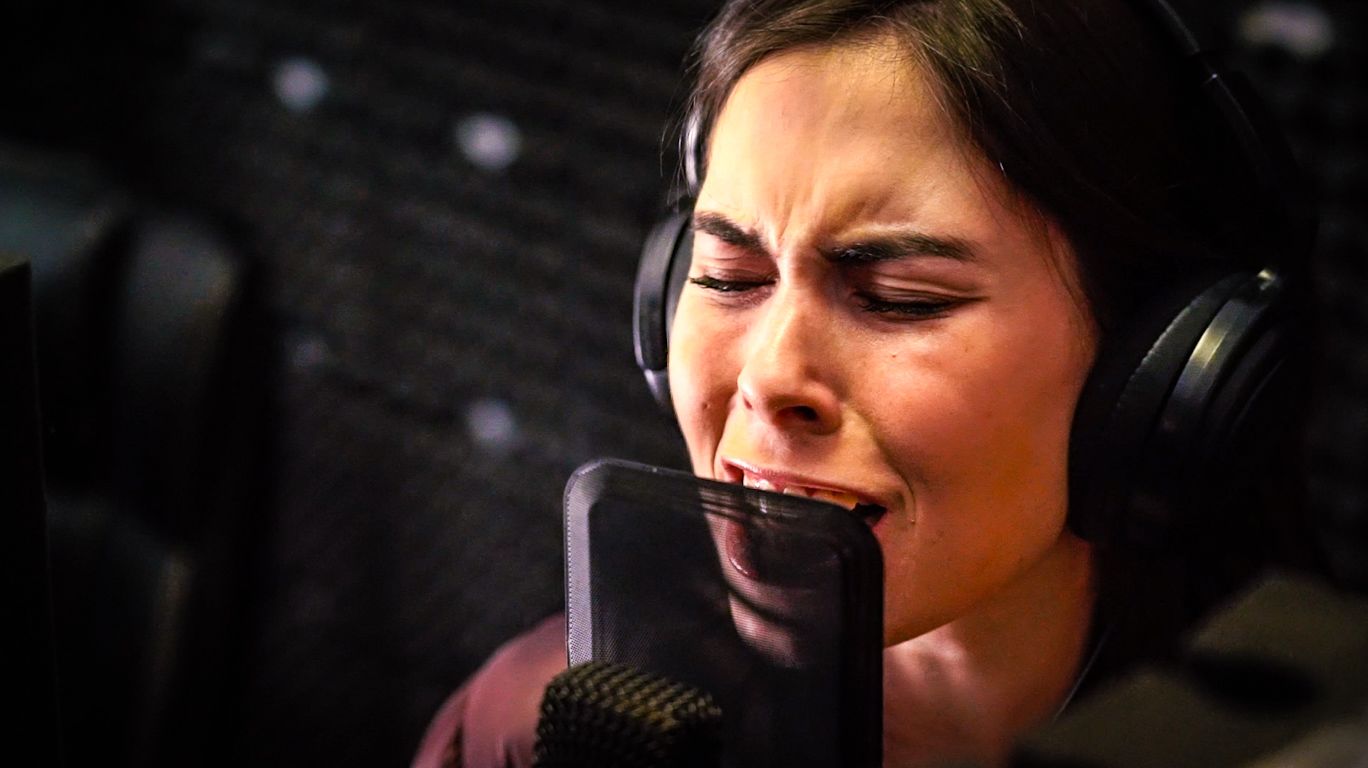
Maureen Bvuma
“Not only do I have to fight the fight of inequality of being a woman, but I also have to fight the fight of being a disabled woman.”
Describing herself as bubbly and social, Maureen Bvuma sets new heights for herself despite being wheelchair-bound.
Bvuma and her older sister Thandi Bvuma were born with a rare genetic disorder called osteogenesis imperfecta, commonly known as brittle bone disease. Since their bones are too weak to carry their bodyweight, they both rely on wheelchairs to be mobile.
Born and bred in Johannesburg, the 34-year-old set out to tell her story in her newly released book titled Queen on Wheels – Ascending the Throne of life.
“The book is a bit about my life, about who Maureen is and where she came from, to where she is now.”
She said the book also answers questions about her confidence and motivation.
Growing up, Bvuma said she lived a normal life with her family.
“I remember visiting my family in Limpopo and all the kids would play indigenous games, as kids would in the village, and it was quite exciting. Even though I was in a wheelchair, I always felt part of the game.”
The author said that society still had so much to learn about people with disabilities.
“In our society, different is seen as a taboo. People always look at someone who is different as someone who is not normal. For them normal is someone who has two legs and can walk.”
Bvuma said that stereotypes of disabled people was something she still found challenging.
“One thing about being disabled is the stereotypes you encounter. You find that people look at you and assume that you’re not the sharpest tool in the box.”
She added that being a woman made it extra challenging.
“Not only do I have to fight the fight of inequality of being a woman, but I also have to fight the fight of being a disabled woman.”
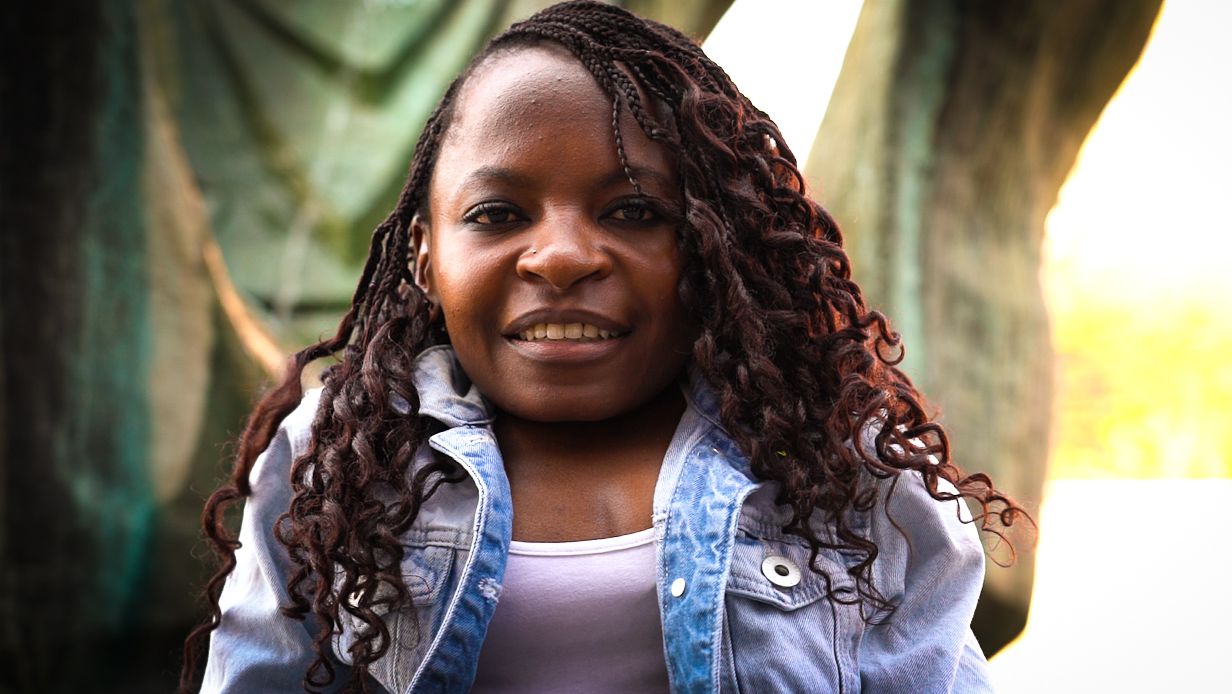
Tinyiko Gwambe
“I don’t have many people to depend on, so it’s up to me to make changes in my life, instead of sitting and letting the challenges take over.”
Driving a car is a milestone most people would like to achieve growing up. A milestone that Tinyiko Gwambe never thought she would achieve.
Yet today, despite being born without any limbs, she sits comfortably behind the wheel.
The 23-year-old was born with tetra-amelia syndrome, a rare congenital disorder characterised by the absence or malformation of all four limbs.
Growing up in Venda, Limpopo, Gwambe always relied on her mother for support, until she passed away when she was just 15-years-old.
“After my mom passed away, it really bothered me because I had to start depending on people that I was not used to, and sometimes I would feel like I am a burden on them.”
Despite this, being surrounded by her five siblings, and with the care from her mother’s sister, she was lucky enough to have had the support she needed.
“My mother had to guide them on how to look after me, because I cannot be independent on my own in a wheelchair.”
Growing up with many challenges in her way, Gwambe was determined to find her independence when she moved to Pretoria to study social work at the University of Pretoria.
“The reason I chose social work is because I wanted a career that would enable me to work with people with disabilities.”
She constantly relied on her sisters, Willemina and Gathrie Gwambe, to push her around on campus when her electric wheelchair gave her problems.
“The problem with electric wheelchairs is that they require a lot of maintenance, and when it breaks, I have to use a normal wheelchair.”
Having graduated earlier this year with a distinction, she is grateful for the support she received throughout her studies.
More challenges ensued when she found herself struggling to find a job after graduation.
“I am currently unemployed because most of the positions I applied for require a driving license so that you are mobile on the job.”
It was at this point that Gwambe decided to enrol for driving lessons in August with Driving Ambitions driving school that caters for people with disabilities.
Gwambe successfully obtained her license after just a month of learning how to drive on her own.
“At first it was scary, but now I am very comfortable,” she said.
However, Gwambe faces another hurdle as she cannot afford to buy a car suited for her needs.
“The car that I require has to be modified and imported from the United Kingdom. It costs about R350 000. This is money that I don’t have, since I am unemployed.”
Gwambe started a BackaBuddy account in 2018 to try and raise money for the car, but was unable to reach her target, accumulating only R30 000 in a year.
She decided to use the money to purchase a second-hand car that her boyfriend drives in order to move around.
“It would have taken too long to raise the money. That’s why I got the second-hand car, so that I can move around until I can save up to buy the car I need.”
Despite this, Gwambe believes that she can still conquer her hurdles, as she has done before.
“I don’t have many people to depend on, so it’s up to me to make changes in my life, instead of sitting and letting the challenges take over.”

Karen Smit
“Having arthritis as a child in the 60s was very uncommon, so doctors would experiment a lot on me.”
Fifty-six-year-old Karen Smit was one of very few children diagnosed with a chronic illness back in 1963.
Smit was told she suffered from Juvenile Rheumatoid Arthritis at the age of four, an autoimmune disorder that causes inflammation and stiffness in the joints. As a result, she lost her ability to walk at the age of 13, as the joints in her hips could no longer function.
“Having arthritis as a child in the 60s was very uncommon, so doctors would experiment a lot on me.”
Having endured two hip replacements and various treatments, Smit regained her ability to walk at the age of 15, and she was determined to build a life for herself that embraced her disability.
Growing up in the harbour town of Mossel Bay in the Western Cape, Smit never identified herself as different and was encouraged to attend normal schools with able-bodied children.
“Growing up in a small town, society and people did not give me much of a chance, and did not believe that I would grow up to be an independent adult living life to the fullest.”
Today, Smit heads up a department that oversees the needs of disabled customers at one of the country’s largest telecommunications companies.
In 2014, Smit founded the Women’s Achievement Network for Disabilities (WAND) with Dr Marlene Le Roux, the CEO of Cape Town’s renowned Artscape Theatre.
“We primarily focus on giving back to girls with disabilities. It’s about showing these women and these girls that they have got a place in society, and linking them to resources so that they can contribute to the economy of the country.”
Smit says that it is important to debunk myths and stereotypes surrounding women who have disabilities.
“So often we hear that women who are disabled cannot get married, or that men are not interested in disabled women. I experienced this, yet I am married to an able man.”
She believes that disabled women face a double judgement from society, as they not only have to deal with the struggles of being disabled, but also being a woman.
“As business women with disabilities who are leading full lives, we have taken the responsibility to embark on a journey to raise the visibility of disabled women and girls, with the aim of demystifying incorrect beliefs and making our voices heard.”
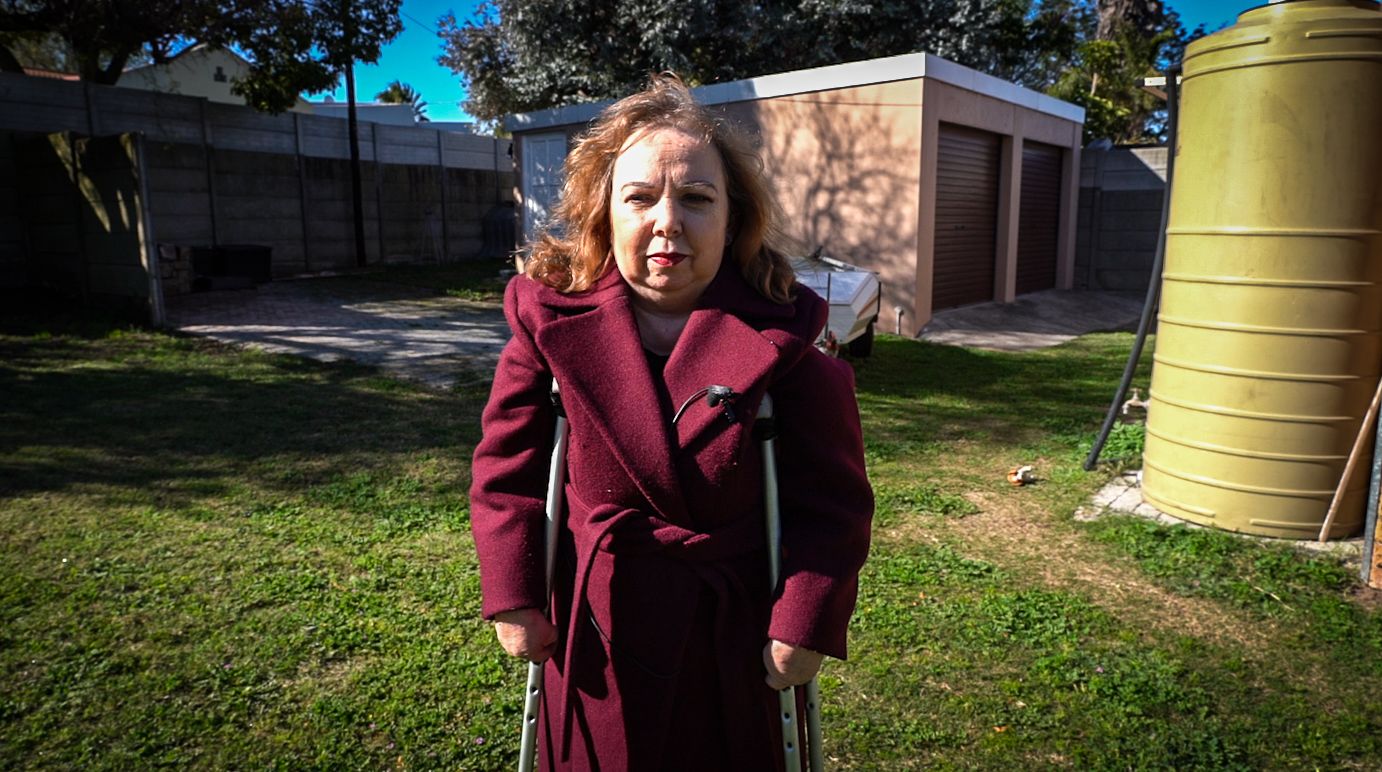
Nadine Mckenzie
“I don’t remember having feeling in my legs because I was so young when it happened, so it’s always just been me and my wheelchair.”
Twenty-nine-year-old Nadine Mckenzie never knew dance was an option for people living with disabilities. Her mindset quickly changed when she was introduced to the art form as a child.
Mckenzie’s life took a drastic turn when she was hit by a drunk driver at the tender age of two. She was left wheelchair-bound after being paralysed from the waist down.
“My spine was injured mainly and that’s what caused my paralysis.”
Growing up in the suburb of Bishop Lavis in Cape Town, Mckenzie only ever had her wheelchair.
“I don’t remember having feeling in my legs because I was so young when it happened, so it’s always just been me and my wheelchair.”
She was introduced to dance at the age of 11 when she got involved in integrated ballroom dancing at school.
Mckenzie became interested in integrated dancing, which involves both abled and disabled people, when she saw a professional production of the art form in Grade 12.
Today she is one of the founders of Unmute Dance Company which prides itself on performances by artists with mixed abilities and disabilities.
Apart from being the current artistic director and co-curator of the Unmute ArtsAbility Festival, Mckenzie is also a qualified integrated dance teacher, receiving training at the ImpulsTanz International Workshop in Vienna, Austria.
“One of the reasons why I love teaching is to be able to share dance with other people,” she said.
Having done multiple outreach programmes with Unmute in communities with disabled people, Mckenzie feels that society is not educated enough on the topic.
“There are still so many stereotypes from society and our communities. They would be shocked to see someone with a disability driving their own car or having a family.”
Mckenzie believes government needs to play a more active role in raising awareness on the topic of inclusivity when it comes to people with disabilities or special needs.
